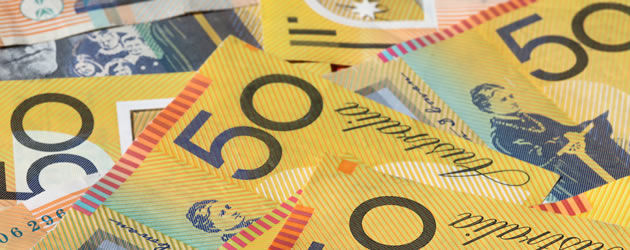EUR/AUD Exchange Rate Climbs Higher on Dovish RBA Policy Statement
The Euro Australian Dollar (EUR/AUD) exchange rate edged higher today and is currently trading at AU$1.6007.
The Australian Dollar (AUD) fell against the Euro (EUR) today following this morning’s announcement that the Reserve Bank of Australia (RBA) decided to hold its interest rates at 1.5%.
The policy statement, however, was littered with dovish statements, with comments highlighting the slowing of the Australian economy in the second half of last year.
The Governor of the RBA, Philip Lowe, however, remained generally optimistic, saying:
‘The low level of interest rates is continuing to support the Australian economy… Taking account of the available information, the Board judged that holding the stance of monetary policy unchanged at this meeting would be consistent with sustainable growth in the economy and achieving the inflation target over time.’
This failed to buoy the ‘Aussie’ against the strengthened Euro today. Many Australian Dollar traders are awaiting Philip Lowe’s speech later on this evening instead – and with any bullish comments this could see the AUD/EUR exchange rate increase.
The Euro, meanwhile, benefited from generally positive economic data releases today, with Spain’s Markit Services PMI figures for February growing steadily at 54.5.
These were followed by the publication of the flash Eurozone Markit PMI figures for February which also increased above expectation to 51.9.
Chris Williamson, Chief Business Economist at IHS Markit, commented:
‘The final PMI for February indicated a slightly improved performance compared to the flash estimate, lifted higher than January in part due to the further easing of one-off dampening factors such as the yellow vest protests in France and new auto sector emissions rules.’
AUD/EUR Exchange Rate Falls as Chinese Economy Shows Signs of Slowing
Today saw the publication of the Chinese Caixin Services PMI which fell below expectation, and drew closer to contraction at 51.1.
This has continued to weaken the Australian Dollar, with China being Australia’s largest trading partner, any signs of a struggling Chinese economy has a directly negative effect on the risk-averse ‘Aussie’.
China has also announced that it is slashing its growth forecast for 2019, which has further dampened market confidence in the Australian Dollar today.
Huang Shouhong, the Head of the Research Office of the State Council, said:
‘China’s economic growth faces many uncertainties this years and it’s hard to predict all the changes … the growth target has to be flexible.’
EUR/AUD Exchange Rate Rises on Positive Eurozone Retail Sales
The Eurozone’s year-on-year retail sales figures for January increased above the expected 1.9% to 2.2%, further bolstering the EUR/AUD exchange rate.
The Euro’s gains, however, were kept in check by the confirmation that Italy’s economy remains in a technical recession.
Meanwhile in political news, the French President Emmanuel Macron has proposed a ‘European renaissance’ in which he highlighted the UK’s Brexit as an example of a ‘mistake’.
Macron said:
‘Never, since the World War II, has Europe been as essential. Yet never has Europe been in so much danger.’
EUR/AUD Outlook: Australian GDP Figures in Focus
‘Aussie’ traders will be looking ahead to tomorrow’s publication of Australia’s GDP figures for the fourth-quarter, and with any signs of an increase this could provide some uplift for the AUD/EUR exchange rate.
Tomorrow will also see the printing of the Australian AiG Performance of Construction Index figures for February.
The EUR/AUD exchange rate is likely to be sensitive to political developments this week, while most Euro traders will be looking ahead to Thursday’s Eurozone’s GDP figures for the fourth-quarter.



